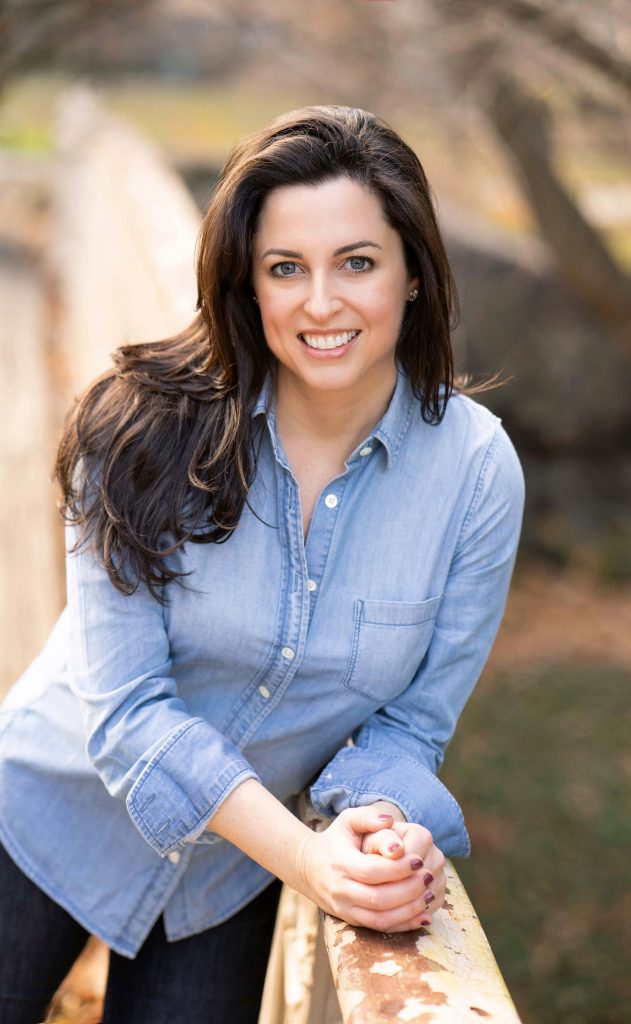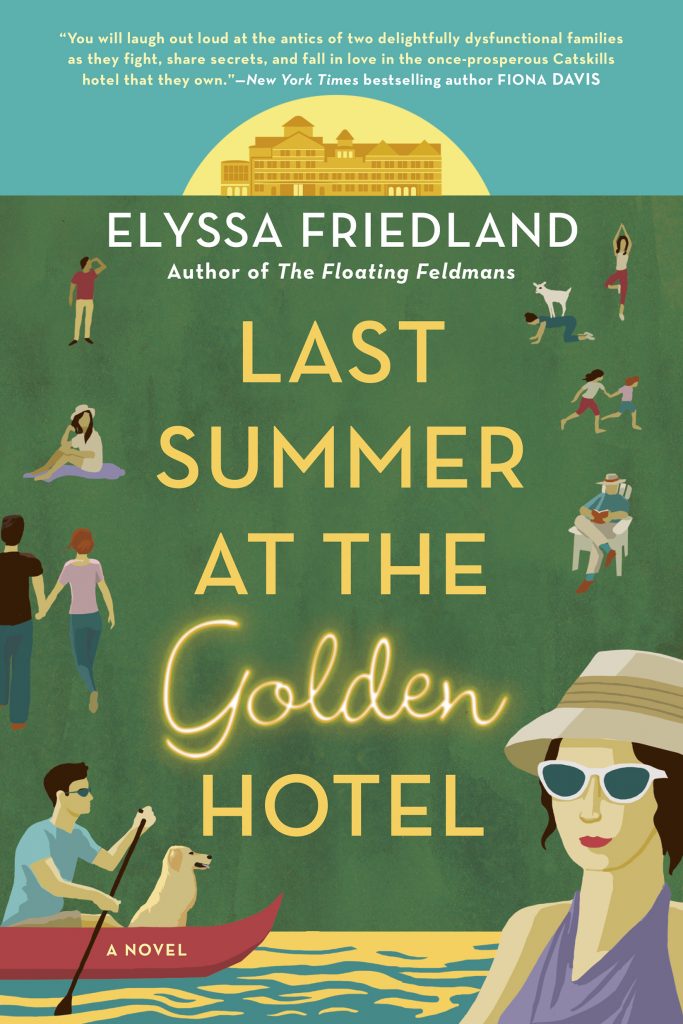

Elyssa Friedland’s writing is sharp and witty; she captures emotion and relationships so precisely and with a wonderful sense of humor. She’s also a master of the attention-grabbing first line, like this from The Floating Feldmans: “It started with a shriek.”
I’m excited to dive into her newest novel, Last Summer at The Golden Hotel, which releases May 18, 2021. Publishers Weekly says, “Friedland brings laughs and nuance to the family foibles and demonstrates a wide range in her convincing narration from the many points of view. Breezy and charming, this is great fun.”
Friedland is the author of several other best-selling novels about families, relationships, and secrets, including The Floating Feldmans and Intermission. She also collaborated with five other writers to create First Street, a novel centered around four Supreme Court clerks. Her writing has been praised by People, “SkimmReads,” Cosmopolitan, Bustle, Good Housekeeping, National Geographic, Woman’s Day, Woman’s World, Kirkus, and Library Journal, among other publications.
A graduate of Yale University, where she currently teaches creative writing, and Columbia Law School, Friedland worked as a lawyer for several years. Along with her books, her work has been published in The Washington Post, McSweeney’s, POPSUGAR, RealSimple.com, Bustle, New York magazine, Columbia Journalism Review, and CBS MarketWatch.com.
She graciously answered a few questions about her shift from lawyering to writing, the collegiality of the writing community, and finding inspiration.
What prompted your move from attorney to novelist? Was there a specific “aha” moment or a slow realization that you wanted to change?
I was never happy as a lawyer. I went to law school as a default move. It was the safe option that enabled me to continue being a student, something I’ve always loved. But after three years working as a corporate attorney and feeling so little passion for my job, I knew I had to quit and pursue my passion for writing.
What’s been most surprising about the writing and publishing process?
How collegial and supportive it is. Writing itself is a lonely endeavor, and I didn’t imagine entering this field would bring me many new friends. But thanks to social media and living in New York City, which is crawling with writers, I am part of a robust and friendly writing community. This took time to develop, but now as I publish my fourth novel, I can truly say I have a large group of writer friends that feel like genuine colleagues and trusted confidantes.
One thing that struck me as I was reading The Floating Feldmans was your ability to write in many points of view, without leaving the reader wondering who each was. At times when I read books with multiple points of view and come to a character shift, I have to flip back a few pages to remind myself who he/she is. That didn’t happen here. Any tips for managing this?
It certainly helped in The Floating Feldmans that the characters were so different demographically. Darius, the teenage boy, wasn’t going to be confused with his grandmother, Annette. My characters are real people to me—they live in my head the entire time I’m writing—and so their voices and mannerisms are as distinct as if they were living. The same is true of my newest book, Last Summer at the Golden Hotel, which has an even bigger cast.
Similarly, I love your use of metaphors, similes, and analogies. Any keys to creating these?
Those take a lot of time to perfect. And there are writers who do it much better than me. My advice is to avoid cliche. Don’t say a character has butterflies in their stomach if you can say something more inventive—like fruit flies buzzing through intestines! I spend a lot of time with my writing students on this. I think the more a person reads, the more they are inspired to create unique metaphors and such.
What tends to change the most from your first draft to your final draft?
Totally depends on the book. Sometimes I change the order in which events unfold to create more drama, sometimes I change an aspect of a character (like their career). And I constantly refine my prose at the sentence level to make it sharper.
How much of your own life and family tends to be inspiration for your stories?
I wouldn’t say a huge amount. Certainly not my family any more than my friends do. I’m a naturally observant person so I absorb ideas and inspiration just as much when I’m in line at the grocery store as I do at my family’s dinner table.
What was it like to create a serial novel with several other authors? (It sounds like a crazy fun project, by the way!)
So much fun. I absolutely loved working on First Street and made some very close friends in the process. Unfortunately we didn’t get picked up for another season, which was a shame. It’s a great book! I think it just lacked the right marketing.